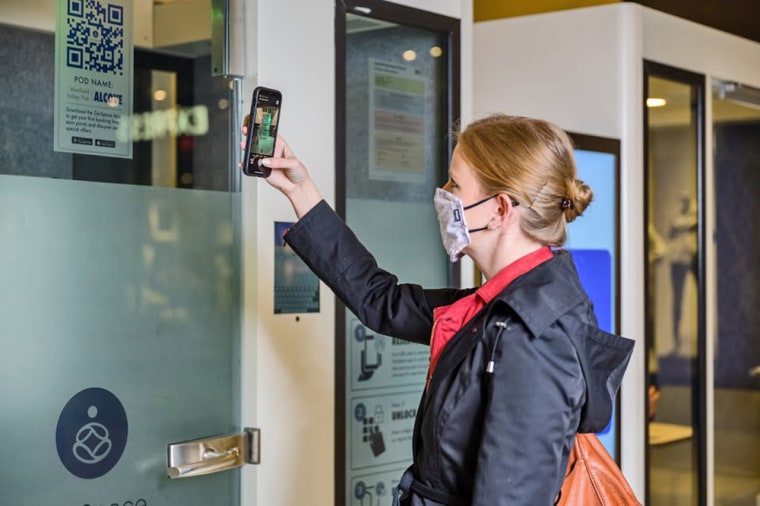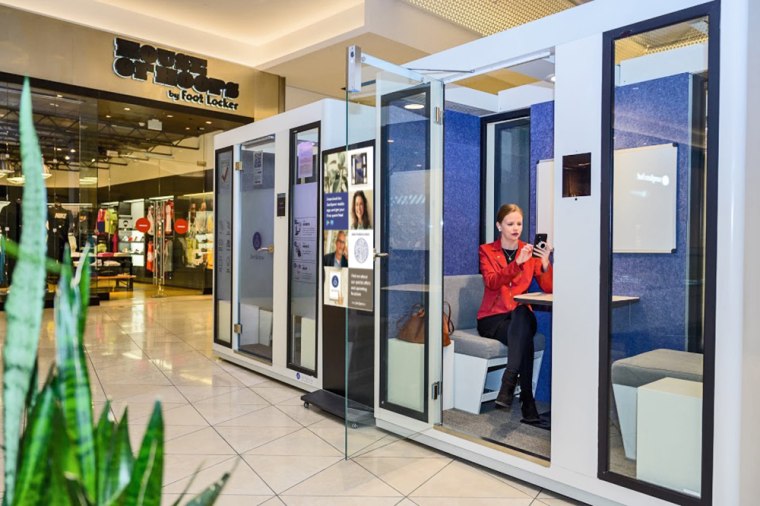The grueling impact of the coronavirus pandemic has deepened the chasm between struggling and soaring malls, forcing shopping centers to spend billions of dollars to reinvent themselves.
For those that survive the pandemic, the rewards could be colossal, as pent-up demand and widespread vaccinations spur a full-throated return to in-person shopping.
“What we expect is a rebound of the consumption very quickly,” Jean-Marie Tritant, CEO of Unibail-Rodamco-Westfield, which owns 29 malls across the United States, told investors Thursday. “The question for us is really being ready when there would be the economic rebound,” he said.
When consumers return to the mall, it likely won’t be a strip of flickering fluorescent lights bookended by traditional department stores. Leading into the pandemic, mall owners had already been updating their properties with outdoor restaurants, fitness centers, grocery stores, and Uber and Lyft areas for pickup and drop-off. But the urgency to update mall corridors in preparation for the new post-pandemic shopper is expected to intensify this year, according to analysts.
“The legacy mall model of having three or four department stores at a mall being the key traffic driver — those days are over,” said Vince Tibone, senior retail analyst with the real estate research firm Green Street. “Malls are trying to adapt to the trends.”
Westfield has rolled out private work spaces at its Valley Fair mall in Santa Clara, California, where remote workers can reserve a quiet zone. At two locations in California, the company has rolled out what are called “automotive studios,” where shoppers can see cars from electric vehicle startups Lucid Motors and ElectraMeccanica in a luxury showroom.
And, as retailers shut down their storefronts at the mall, Westfield is filling those spaces with digitally native companies such as Casper, Warby Parker and Peloton, which are breaking into the brick-and-mortar business.

Simon Property Group, the country's largest mall operator, is breaking ground on three hotels connected to its shopping centers and looking for grocery stores to replace empty department stores, CEO David Simon told investors last week. The stores that will take up those old retail anchors, including Dick's Sporting Goods, Primark and Kohl’s, are aimed at drawing customers looking for affordable items.
“We are relooking at [anchors] with the idea toward reducing the amount of new retail that we might put onboard, but also the restaurants,” Simon said. “I would hope that some of the more thoughtful entertainment-oriented retailers, once the Covid restrictions get back, would also continue to be in our property.”
Brookfield Properties, which operates more than 170 retail locations across the U.S., plans to turn an empty Sears store at Alderwood Mall into housing. Another empty Sears in Idaho Falls will become a charter high school. An old Macy’s at Stonestown Galleria will be redeveloped into a Whole Foods, health care facility, movie theater and smaller retail stores.
The stakes could not be higher. Brookfield mall traffic is still only 70 percent of its average, Brookfield Properties Retail Group CEO Jared Chupaila told investors last week. Westfield said more than half of its shopping centers across the globe remain closed. The company reported retail investment in the year to November 2020 fell by 48 percent from the previous year, and it is still digging its way out of $29 billion in long-term debt after it was acquired by the Paris-based commercial real estate giant Unibail-Rodamco in 2018.
While 2021 and vaccines may bring some much-needed hope for the country’s malls, it remains to be seen how and why shoppers will return to malls, even when it is safer.
“The jury is still out,” said Mark Hunter, managing director of retail asset services with the real estate firm CBRE. “Once the vaccine is given to most Americans, what will happen? Will they have new shopping habits? I think no one can really predict that.”
Consumers who have been housebound for the last year are ready to indulge in “revenge shopping and revenge spending,” Conor Flynn, CEO of Kimco Realty, which operates about 400 shopping centers in the U.S., said in an investor call Thursday.
“I can't tell you how many conversations I've had about what restaurants people are going to go to, or what fitness club they're going to go back to, or what trips they're going to take,” he said. “There's some green shoots on the horizon that we're cautiously optimistic about.”
